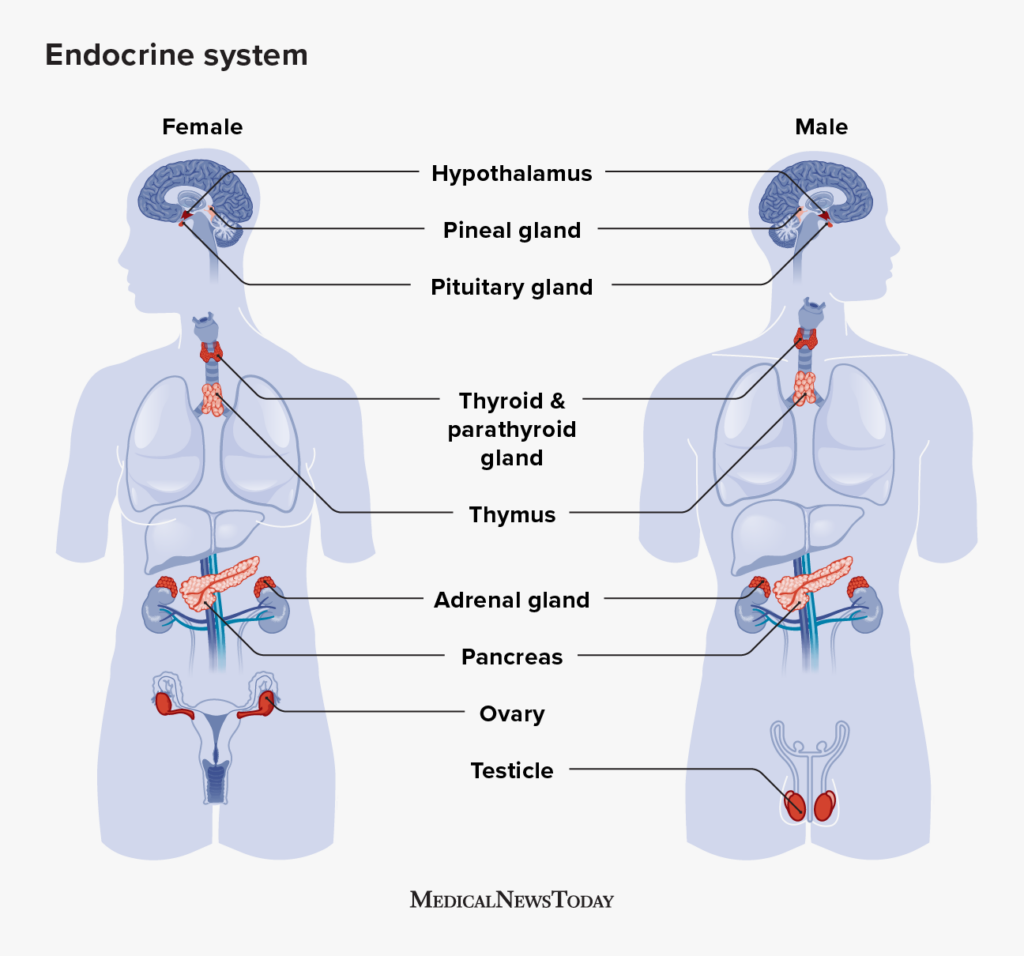Best Endocrinologist in Austin: Premier Hormonal Health Care in the Resources
Wiki Article
The Scientific Research Behind Hormone Regulation: Insights From an Endocrinologist
The Science Behind Hormonal Agent Guideline: Insights From an Endocrinologist uses a thorough expedition of the elaborate procedures included in hormone regulation. Whether you are a medical professional seeking a much deeper understanding of endocrine function or a private interested in discovering concerning the science behind hormonal agent regulation, this publication is an invaluable source.Hormonal Agents and Their Functions
Hormonal agents play crucial functions in the policy and coordination of numerous physiological procedures within the body. These chemical messengers are created by endocrine glands and are launched into the blood stream, where they travel to target cells or body organs to apply their impacts. The functions of hormones are varied and incorporate almost every element of human physiology.Among the primary functions of hormones is to keep homeostasis, which is the stable interior setting essential for the body to work ideally. Insulin, a hormone generated by the pancreas, regulates blood glucose levels by promoting the uptake and storage space of sugar in cells. Another hormone, cortisol, aids the body reply to stress and anxiety by boosting blood sugar level degrees and subduing the immune system.
Hormonal agents additionally play essential functions in growth and advancement. Growth hormone, generated by the pituitary gland, stimulates the growth of tissues and bones, while thyroid hormones control metabolic rate and affect the development of the nerves - Endocrinologist in cedar park. In addition, reproductive hormonal agents, such as estrogen and testosterone, are in charge of the development and upkeep of additional sex-related characteristics and the policy of the menstruation
The Endocrine System: An Introduction
Playing an essential duty in the policy and control of physiological processes, the endocrine system is an intricate network of glands that create and launch hormonal agents into the blood stream. These glands, including the hypothalamus, pituitary gland, thyroid gland, adrenal glands, pancreatic, ovaries, and testes, produce hormones that serve as chemical messengers, affecting numerous physical features. The endocrine system functions in combination with the nerve system to manage and preserve homeostasis, ensuring that the body's internal setting remains stable.It creates hormones that boost or prevent the release of hormones from the pituitary gland, which in turn regulates the task of other endocrine glands. The thyroid gland, situated in the neck, produces hormonal agents that control metabolism and power balance.

Law of Hormone Manufacturing
The regulation of hormone production includes a complex interplay in between different glands and feedback devices within the endocrine system. Hormonal agents are chemical messengers that play a crucial duty in preserving homeostasis and coordinating numerous physiological procedures in the body. The manufacturing of hormones is snugly managed to guarantee the correct functioning of the endocrine system.The hypothalamus, situated in the brain, acts as a crucial regulator of hormone manufacturing. It releases hormonal agents that stimulate or prevent the production of hormonal agents by the pituitary gland, which is typically described as the "master gland" of the endocrine system. The pituitary gland, in turn, generates hormones that act on numerous target glands throughout the body, stimulating them to create and launch particular hormonal agents.
Feedback systems additionally play an important duty in hormonal agent policy. There are 2 kinds of feedback systems: adverse feedback and positive responses. Negative feedback assists keep hormonal agent levels within a narrow variety. When hormonal agent degrees rise above or drop listed below the optimum range, the body activates devices to either decline or increase hormone production, specifically, to recover equilibrium. Favorable feedback, on the other hand, magnifies the manufacturing of hormonal agents in feedback to certain stimuli, such as childbirth.
Responses Loops in Hormonal Agent Guideline
Comments loops play a more info here crucial role in the regulation of hormonal agent manufacturing. These loopholes include a series of communications in between the endocrine glands, hormones, and target organs to keep homeostasis in the body. There are 2 kinds of feedback loops: unfavorable feedback and favorable comments.Unfavorable feedback is one of the most typical type of feedback loophole in hormone regulation. It functions by noticing the levels of a hormone in the blood and adjusting hormone production as necessary. When hormone degrees increase over a certain limit, the hypothalamus in the mind signals the pituitary gland to lower hormonal agent production. This, subsequently, minimizes the stimulation of the target body organ, causing a reduction in hormonal agent secretion. Conversely, when hormonal agent levels go down below the limit, the hypothalamus promotes the pituitary gland to increase hormone manufacturing, bring back equilibrium.
Positive responses loops, on the other hand, intensify hormone manufacturing. This takes place when a hormone promotes the launch of more of the exact same hormonal agent, leading to a fast rise in its levels. Nevertheless, favorable feedback loops are much less usual in hormone policy and are normally involved in particular physical procedures, such as giving birth and lactation.
Aspects Affecting Hormonal Agent Equilibrium
Factors influencing hormone balance include dietary options, way of life behaviors, and ecological direct exposures. These factors can have a significant influence on the delicate balance of hormones in the body, impacting different physiological processes and general health and wellness.Nutritional options play a critical duty in hormonal agent law. Eating a well balanced diet regimen that consists of a selection of nutrients is crucial for keeping hormonal agent equilibrium. Specific nutrients, such as omega-3 fatty acids, vitamins, and minerals, are particularly essential for optimal hormone feature. On the various other hand, a diet plan high in processed foods, fine-tuned sugars, and unhealthy fats can disrupt hormonal agent degrees and cause discrepancies.
Ample sleep is critical for hormone manufacturing and policy, as interfered with sleep patterns can lead to discrepancies. Additionally, chronic stress and anxiety can dysregulate the hypothalamic-pituitary-adrenal (HPA) axis, an essential gamer in hormonal agent policy, leading to a waterfall of hormonal discrepancies.

Conclusion
In verdict, understanding the scientific research behind hormonal agent policy is crucial for maintaining general health and wellness. Hormonal agents play important duties in various physical functions, and their production is managed by complex responses loopholes. Elements such as way of living, tension, and diet plan choices can affect hormonal agent equilibrium. By studying and comprehending these mechanisms, we can better understand and manage hormone-related conditions, ultimately resulting in enhanced health and wellness results.The Science Behind Hormone Law: Insights From an Endocrinologist offers a comprehensive expedition of the intricate procedures included in hormone guideline. It produces hormonal agents that promote or hinder the release of hormones from the pituitary gland, which in turn regulates the activity of various other endocrine glands. It releases hormonal agents that ps rudie stimulate or inhibit the manufacturing of hormones by the pituitary gland, which is often referred to as the "master gland" of the endocrine system. The pituitary gland, in turn, creates hormonal agents that act on different target glands throughout the body, boosting them to create and launch details hormones.
When hormonal agent degrees increase over a certain threshold, the hypothalamus in the mind signals the pituitary gland to reduce browse around here hormonal agent manufacturing. (endocrinologist in liberty hill)
Report this wiki page